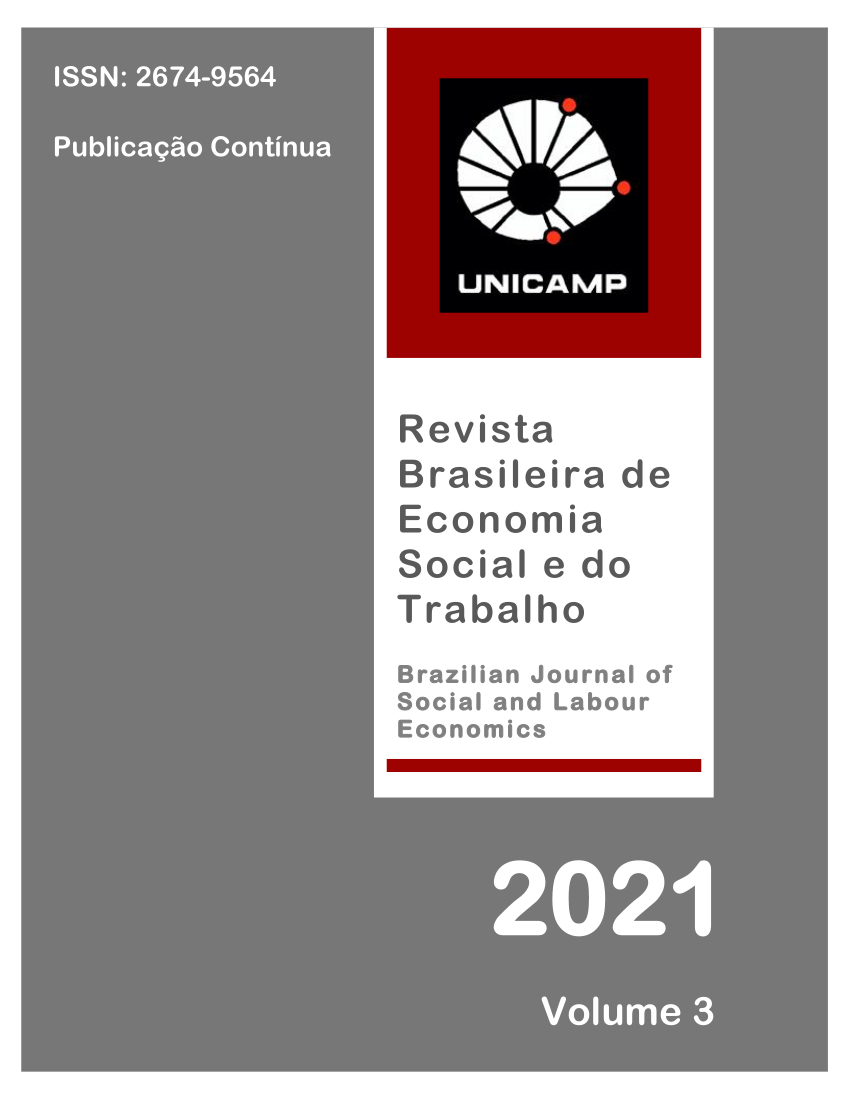Résumé
Le paradigme de l'“industrie 4.0” est présent dans la stratégie des gouvernements, des associations d'employeurs et des centrales syndicales. En revisitant l'étude classique de Piore et Sabel sur la spécialisation flexible, nous critiquons l'unilatéralité et l'étroitesse inhérentes au discours de l'industrie 4.0, auquel nous opposons des analyses empiriques sur les réseaux décentralisées d'usines. Contrairement à l'image stylisée qui prévaut, la flexibilité est facilitée par les plateformes “B2B” qui mettent en relation les fabricants et les clients – un modèle qui repose davantage sur la polyvalence des réseaux de production décentralisé que sur une technologie industrielle avancée. Les effets sur le travail sont ambivalents, car ils impliquent à la fois un potentiel pour un paradigme de fabrication à petite échelle et à forte intensité de main-d'œuvre qualifiée, et des dangers découlant de la pression concurrentielle pour la réduction des coûts. En bref, notre objectif est d'offrir des éléments théoriques et empiriques pour comprendre les changements dans la fabrication numérisée et de mettre en évidence le modèle des réseaux et des plateformes “B2B” dans le débat sur la transformation de la manufacture et du travail industriel.
Références
Bauer, W., Schlund, S., Marrenbach, D., & Ganschar, O. (2014). Industrie 4.0: Volkswirtschaftliches potenzial für Deutschland. Bitkom und Frauenhofer IAO. https://www.bitkom.org/Bitkom/Publikationen/Industrie-40-Volkswirtschaftliches-Potenzial-fuer-Deutschland.html
Bundesministerium für Bildung und Forschung (BMBF) (2015). Zukunftsbild “Industrie 4.0”. https://www.plattform-i40.de/IP/Redaktion/DE/Downloads/Publikation/zukunftsbild-industrie-4-0.pdf
Bundesministerium für Wirtschaft und Energie (BMWi) (n.d.). Digitale transformation in der Industrie. https://www.bmwi.de/Redaktion/DE/Dossier/industrie-40.html
Butollo, F., Jürgens, U., & Krzywdzinski, M. (2019). From lean production to Industrie 4.0: More autonomy for employees? In U. Meyer, S. Schaupp, & D. Seibt (Eds.), Digitalization in industry: Between domination and emancipation (pp. 61–80). Springer International Publishing.
Chu, N. (2018). The paradoxes of creativity in Guangzhou: China’s wholesale market for fast fashion. Culture, Theory and Critique, 59(2), 178–192. https://doi.org/10.1080/14735784.2018.1443020
Frederick, S., & Gereffi, G. (2011). Upgrading and restructuring in the global apparel value chain: Why China and Asia are outperforming Mexico and Central America. International Journal of Technological Learning, Innovation and Development, 4(1/2/3), 67–95. https://doi.org/10.1504/IJTLID.2011.041900
Hirsch-Kreinsen, H. (2016a). Digitization of industrial work: Development paths and prospects. Journal for Labour Market Research, 49(1), 1–14. https://doi.org/10.1007/s12651-016-0200-6
Hirsch-Kreinsen, H. (2016b). “Industry 4.0” as promising technology: Emergence, semantics and ambivalent character’. [Soziologisches Arbeitspapier Nr. 48], Technische Universität Dortmund. https://doi.org/10.17877/DE290R-17346
Hirsch-Kreinsen, H. (2019). Industry 4.0: A path-dependent innovation. [Soziologisches Arbeitspapier Nr. 56], Technische Universität Dortmund. http://dx.doi.org/10.17877/DE290R-19871
IG Metall (2016). Industrie 4.0 in der praxis. Die digitalisierung gestalten. https://www.arbeit2020.de/fileadmin/Arbeit2020/4.1_Broschueren/IGM_Industrie_4.0_in_der_Praxis.pdf
Kagermann, H., Wahlster, W., & Helbig, J. (2013). Recommendations for implementing the strategic initiative Industrie 4.0. [Final report of the Industrie 4.0 Working Group], National Academy of Science and Engineering (Acatech); Forschungsunion Wirtschaft - Wissenschaft. https://www.din.de/blob/76902/e8cac883f42bf28536e7e8165993f1fd/recommendations-for-implementing-industry-4-0-data.pdf
Krzywdzinski, M., & Butollo, F. (2021). Between manufacturing expertise and artificial intelligence. The challenge of ambidexterity in the digital transformation of a traditional manufacturing enterprise. [Unpublished manuscript].
Kuhlmann, M. (2020, January 16). Digitalisierung & arbeit – eine zwischenbilanz aus arbeitssoziologischer sicht. [Presented at the tagung “Zukunft der arbeit: Gute arbeit und gutes arbeitsleben im digitalen zeitalter”], House of Labour, Frankfurt.
Lüthje, B. (2019). Platform capitalism “made in China”? Intelligent manufacturing, Taobao Villages, and the restructuring of work. Science, Technology and Society, 24(2), 199–217. https://doi.org/10.1177/0971721819841985
Lüthje, B., Luo, S., & Zhang, H. (2013). Beyond the iron rice bowl: Regimes of production and industrial relations in China. Campus Verlag.
MacKenzie, D. A., & Wajcman, J. (1999). The social shaping of technology (2nd ed.). Open University Press.
Pfeiffer, S. (2017). Industrie 4.0 in the making: Discourse patterns and the rise of digital despotism. In M. Krzywdzinski, K. Briken, S. Chillas, & A. Marks (Eds.), The new digital workplace: How new technologies revolutionise work (pp. 21–41). Palgrave Macmillan.
Pfeiffer, S., & Huchler, N. (2018). Industrie 4.0 konkret: Vom leitbild zur praxis? WSI-Mitteilungen, 71(3), 167–173. https://doi.org/10.5771/0342-300X-2018-3-167
Piore, M. J., & Sabel, C. F. (2000). The second industrial divide: Possibilities for prosperity. Basic Books. (original work published 1984).
Schneidemesser, L. (2019). Die new manufacturing initiative von Alibaba. Internal Report for the Future of Work Department, German Metal Workers Union – IG Metall. [Monitoring der Digitalisierung in China, No. 6], IG Metall, Frankfurt am Main.
Schwab, K. (2017). The fourth industrial revolution. Currency.
Sorge, A., & Streeck, W. (1988). Industrial relations and technical change: The case for an extended perspective. In R. Hyman, & W. Streeck (Eds.), New technology and industrial relations (pp. 19-44). Blackwell.
Spath, D. (Ed.) (2013). Produktionsarbeit der zukunft: Industrie 4.0. [Studie], Fraunhofer-Verlag. https://www2.iao.fraunhofer.de/images/iao-news/produktionsarbeit-der-zukunft.pdf
Sturgeon, T. J. (2019). Upgrading strategies for the digital economy. Global Strategy Journal, 11(1), 34–57. https://doi.org/10.1002/gsj.1364
Zeng, M. (2018). Smart business: Alibaba, the future of strategy, and what it means for you. Harvard Business Review Press.

Ce travail est disponible sous licence Creative Commons Attribution - Pas d’Utilisation Commerciale - Partage dans les Mêmes Conditions 4.0 International.
(c) Tous droits réservés Florian Butollo, Lea Schneidemesser 2021


